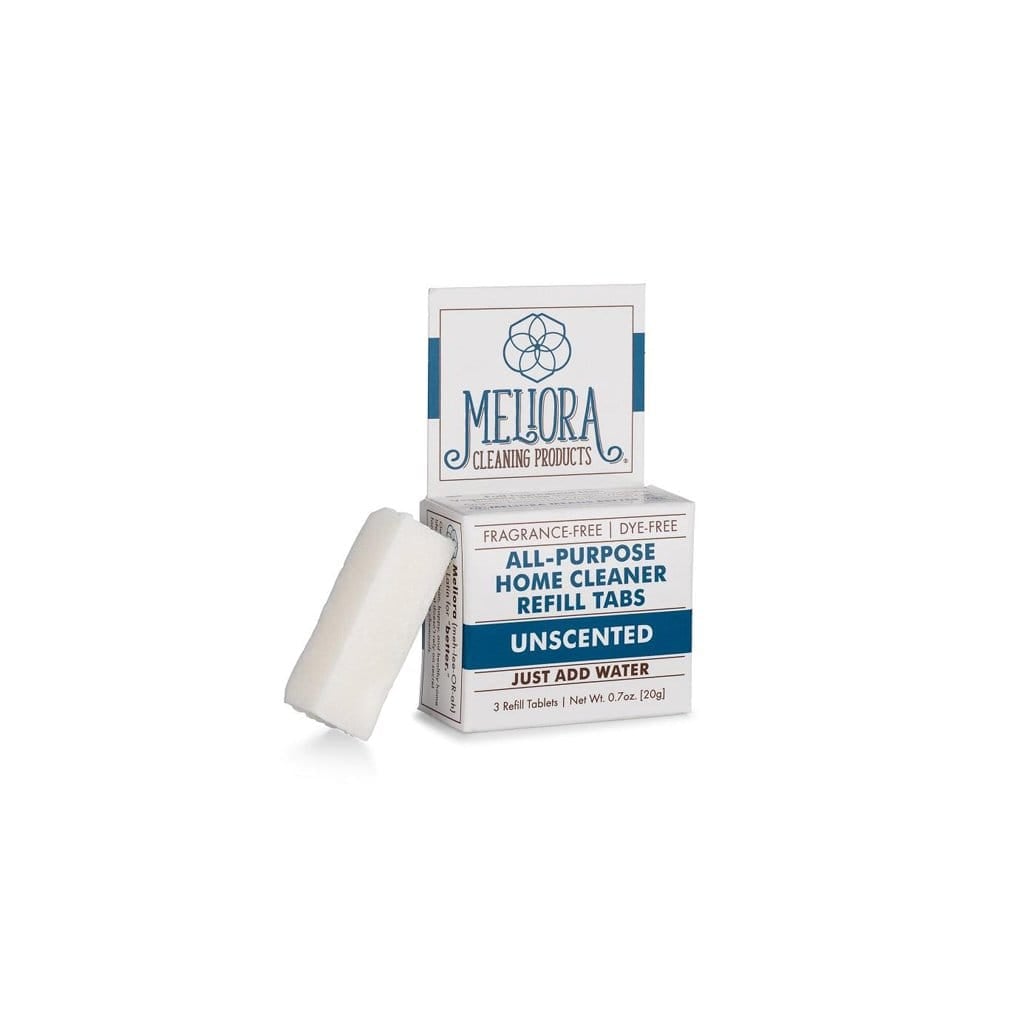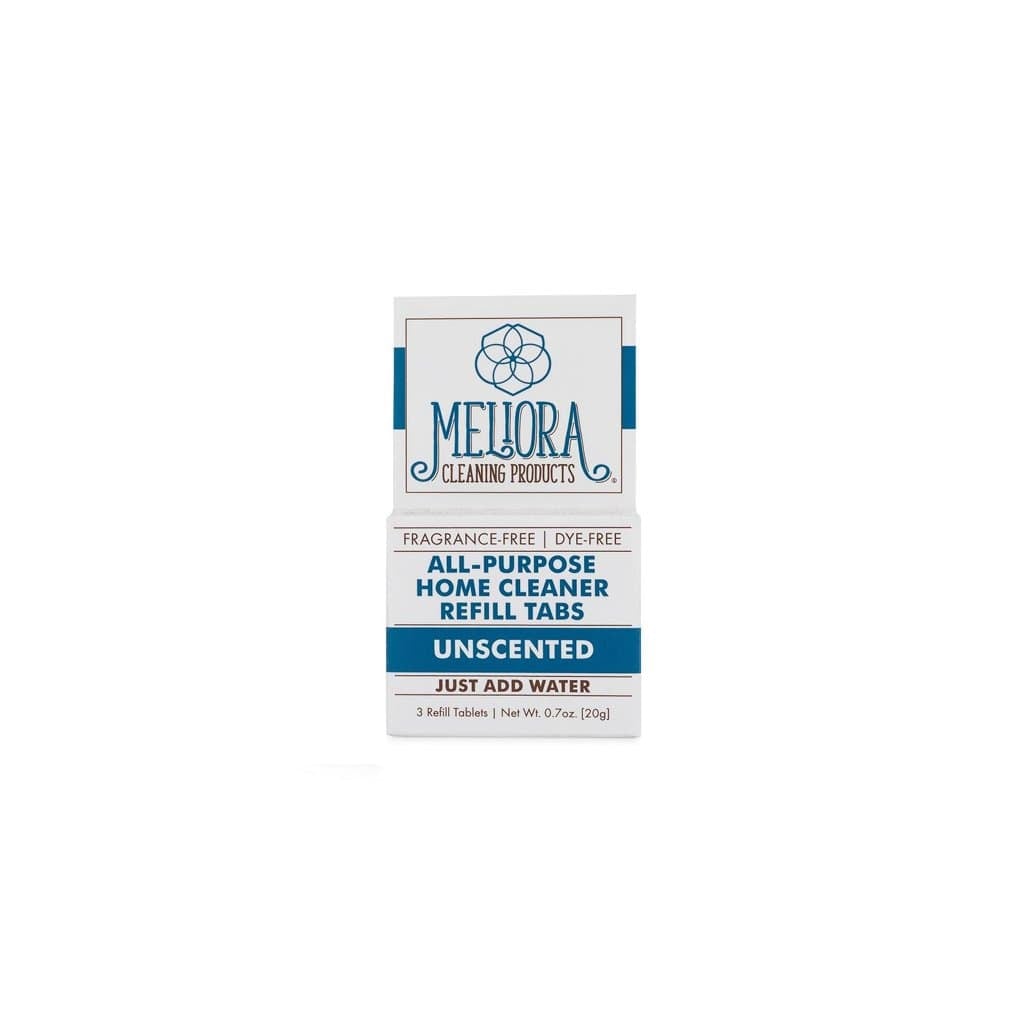All-Purpose Cleaner Tablets, 3-Pack
Meliora's All-Purpose Home Cleaner is your one-stop solution for cleaning the hard surfaces in your home. Floors, walls, countertops, even the greasy fingerprint smudges on the fridge. Just drop a tablet into a clean spray bottle and add water to make 16 ounces of dirt-busting cleaning solution that's free of dye, preservatives, and synthetic fragrances.
Ingredients: vegetable soap [potassium cocoate, sodium cocoate, glycerin, water, organic cocos nucifera (coconut) oil]
Made by: Meliora Cleaning Products
Made in: Chicago, IL, USA
Specifications:
- 3 refill tabs (enough to make 48 oz of All Purpose Spray)
- 100% plastic-free
- dye-free
- preservative-free
- palm-oil free
- cruelty-free
- synthetic fragrance-free
- vegan
Use: Drop 1 tablet into empty bottle. Fill bottle with 16 oz. of warm water. Close bottle and shake gently; wait for tablet to dissolve. Spray onto any hard surface and wipe until clean and dry.
*Always test any stained/finished surface in an inconspicuous spot





